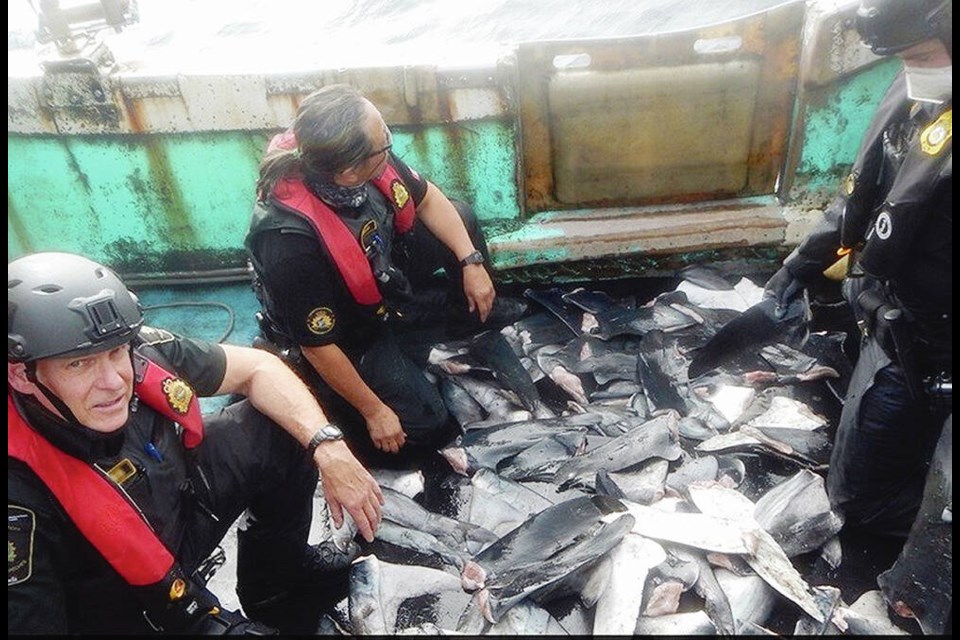Fisheries and Oceans Canada have completed a two-month mission in the North Pacific, where boarding crews inspected dozens of vessels from around the world, seized illegal catches, and cited boats for pollution and other international fishing infractions.
During inspections on some international vessels, DFO officers discovered more than 3,000 illegally possessed and stored shark fins, including threatened species such as the oceanic white tip shark.
The fins are often cut from the sharks while they are still alive and their bodies tossed back into the ocean, where they sink and suffocate.
DFO took a lead role for the first time in patrolling across about 12,000 nautical miles of open ocean in the North Pacific — the equivalent of travelling halfway around the world — to combat illegal, unreported and unregulated fishing.
Operation North Guard was also part research, as 28 crew members, including DFO fisheries personnel and members of the Canadian and U.S. coast guards, used a contracted ship, Atlantic Condor, to collect data on the range of Pacific salmon stocks. The ship left Patricia Bay July 26 and returned last week.
The enforcement boarding teams interacted with about 400 crew members from different nations onboard dozens of vessels. Canada also conducted air surveillance, based out of Japan, in support of the mission.
Canadian fishery officers and air crew flew 31 patrols, and visually inspected about 400 vessels to confirm compliance with the conservation measures in place throughout the North Pacific. Air patrols shared the information with enforcement partners in Japan and the United States.
Canada is working with the appropriate flagged countries that license the boats to support further investigations and sanctions on the offending vessels. The mission provided evidence of 58 violations during the patrols.
A flag state is the jurisdiction under whose laws the vessel is registered, and is deemed the nationality of the vessel. The DFO said if the flag-state response to significant violations isn’t acted upon appropriately, an international commission could ban the vessel from fishing.
Canada has been part of the high-seas patrols since 2019 with the U.S.
DFO said illegal fishing is considered a major contributor to declining fish stocks globally, poses a risk to salmon populations in the North Pacific Ocean and is a “potential driver” of Pacific salmon declines in British Columbia.
The patrols acting under international law also enforce the United Nations’ ban on driftnets.
>>> To comment on this article, write a letter to the editor: [email protected]



